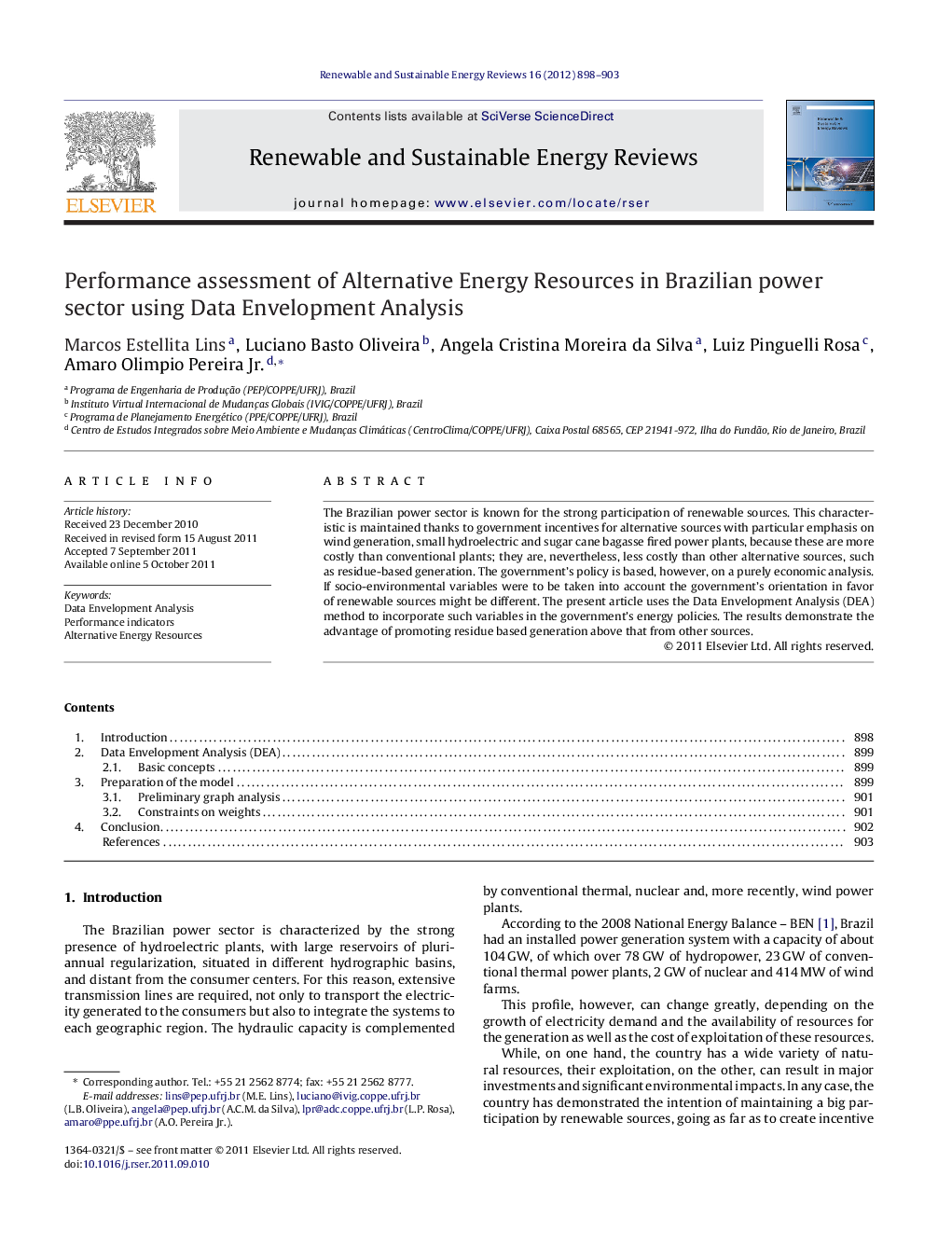| Article ID | Journal | Published Year | Pages | File Type |
|---|---|---|---|---|
| 1751309 | Renewable and Sustainable Energy Reviews | 2012 | 6 Pages |
The Brazilian power sector is known for the strong participation of renewable sources. This characteristic is maintained thanks to government incentives for alternative sources with particular emphasis on wind generation, small hydroelectric and sugar cane bagasse fired power plants, because these are more costly than conventional plants; they are, nevertheless, less costly than other alternative sources, such as residue-based generation. The government's policy is based, however, on a purely economic analysis. If socio-environmental variables were to be taken into account the government's orientation in favor of renewable sources might be different. The present article uses the Data Envelopment Analysis (DEA) method to incorporate such variables in the government's energy policies. The results demonstrate the advantage of promoting residue based generation above that from other sources.
